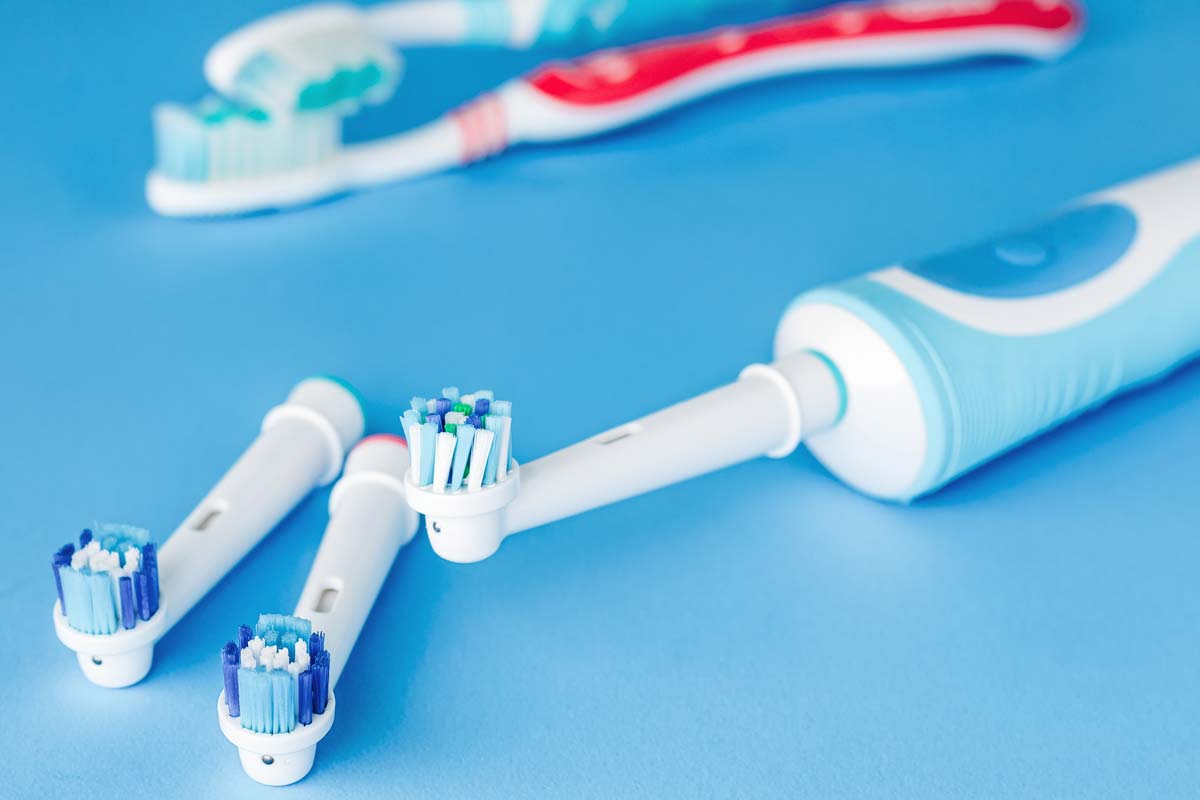If you have gone three months or longer without replacing your toothbrush, it’s past time to do so. Mangled or frayed bristles are not as effective as those of a new toothbrush. Further, it is likely harboring bacteria. In these circumstances, it is time to discard your old toothbrush in favor of a new one. With such a wide variety to choose from, the toothbrush section of a store can be somewhat daunting. Fortunately, types of toothbrushes can be broken down into three categories: manual, electric, and interdental. Below is more information about the most common types.
Manual Toothbrushes
This is the basic toothbrush that you probably grew up using. They have been around since 1938, with improvement in materials and performance as the years have progressed. Standard toothbrushes are often the first line of defense for oral hygiene. In addition to brushing, regular cleanings at the dentist’s office and fluoride treatments round out a healthy regimen. Manual toothbrushes are available in a slew of options, but you can base your decision on four basic factors. These include the hardness of the bristles, the shape of the head, the pattern of the bristles, and the design of the handle.
When it comes to bristle hardness, you are probably best served with soft bristles. Toothbrushes with soft bristles suffice to clean away plaque without causing irritation to your gums or wearing away your enamel. Still, some people with hardy gums prefer medium or hard bristles for the benefit of clearing away more plaque.
Your standard toothbrush has a rounded or squared head. Other toothbrushes boast a diamond-shaped head. These tend to be superior at reaching those spots in the back of your mouth. Conventional toothbrushes may not be as thorough when it comes to getting at the sides and backs of your molars.
Bristle patterns are widely varied in modern toothbrushes. Common patterns include wavy, tapered, crisscross, and bristles that feature polishing cups. The type you choose depends on personal preference; select according to your dental hygiene needs and which pattern feels best in your mouth.
Handle designs come in four general subtypes: straight, non-slip grip, contra-angle, and flexible. Your toothbrush’s handle should fit comfortably in your grasp and permit you to reach every surface of your teeth. This includes those at the extreme rear of your mouth.
Electric Toothbrushes
Electric toothbrushes have rotating bristles that help give difficult-to-reach places in the mouth a thorough cleaning. The multi-directional power of an electric toothbrush may well reduce incidences of plaque and gingivitis in comparison to standard side-to-side brushing with manual toothbrushes. Electric toothbrushes have a variety of features and are split into three classifications: standard, sonic, and ultrasonic.
Standard power toothbrushes, in general, lump together all electric toothbrushes that do not fit into the other two categories. They may still boast extra features, such as timers, to ensure a thorough cleaning.
Sonic toothbrushes move fast enough to produce an audible hum. This sound may be anywhere from 20 Hz up through 20,000 Hz. Sonic toothbrushes tend to be slightly more expensive.
Ultrasonic toothbrushes move still faster than sonic toothbrushes. Some models have both sonic and ultrasonic settings. These are still more expensive than the previous options but offer a thorough polish. Your dental hygienist may use such a brush in routine teeth cleaning.
Interdental Toothbrush
You are less likely to find these types of toothbrushes in a general oral hygiene section. Still, when used with standard toothbrushes, they have been shown to reduce both incidences of gingivitis and amounts of plaque than the use of standard toothbrushes alone.
These brushes are small and generally disposable and offer either reusable handles or integral handles. They are used for cleaning between the teeth as well as between the gaps of dental braces wires and teeth.
Carefully Consider the Types of Toothbrushes
The different types of toothbrushes all serve to assist you in keeping a clean and healthy mouth. Oral hygiene is vital to your overall health. Contact our Lovett Dental Beaumont team at 409-924-8100 to schedule an appointment and ensure a thoroughly clean set of teeth.







